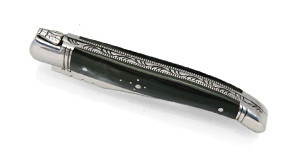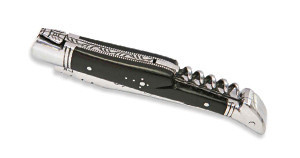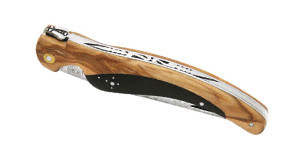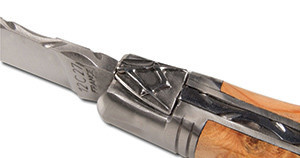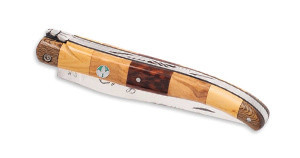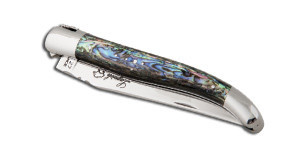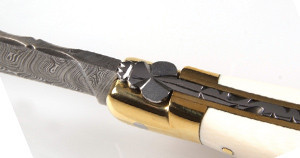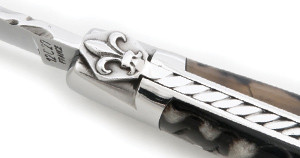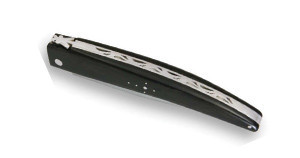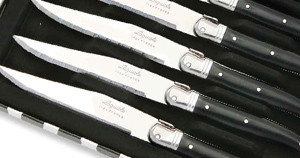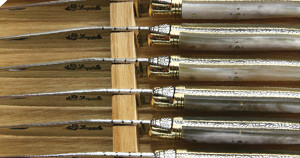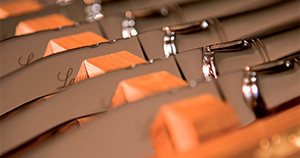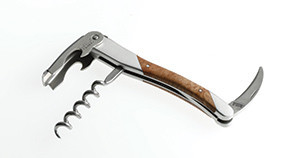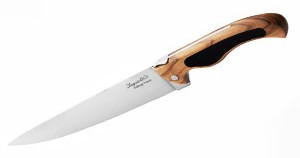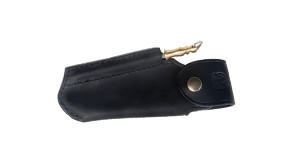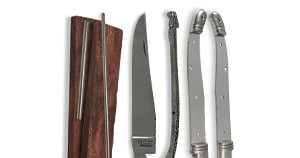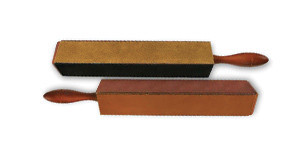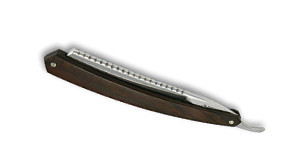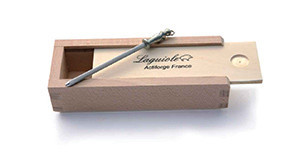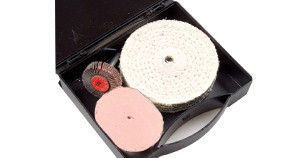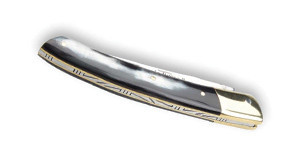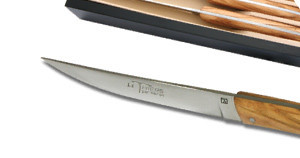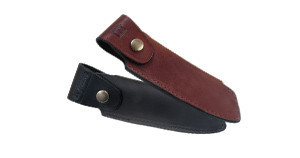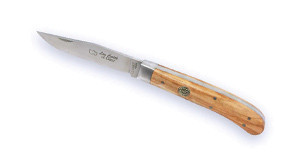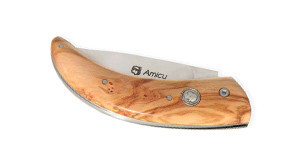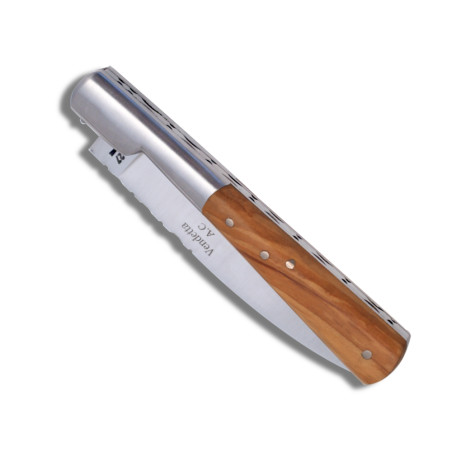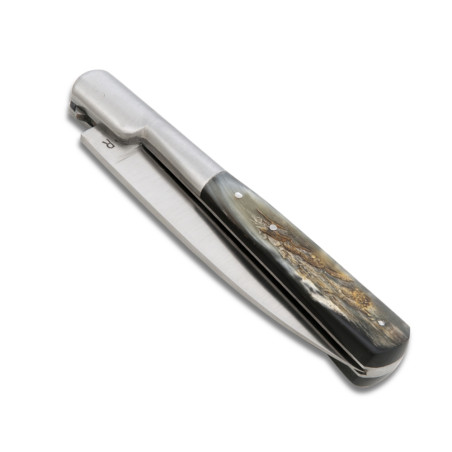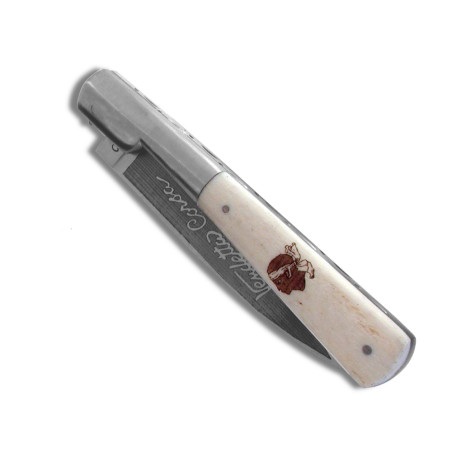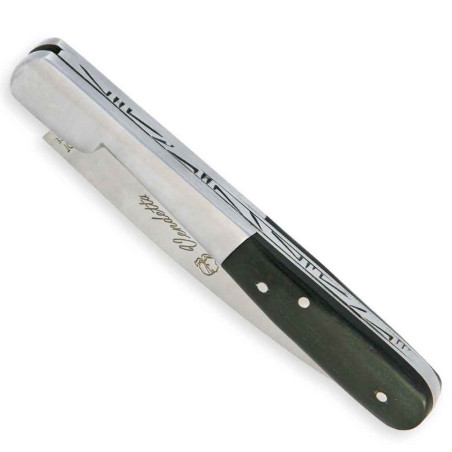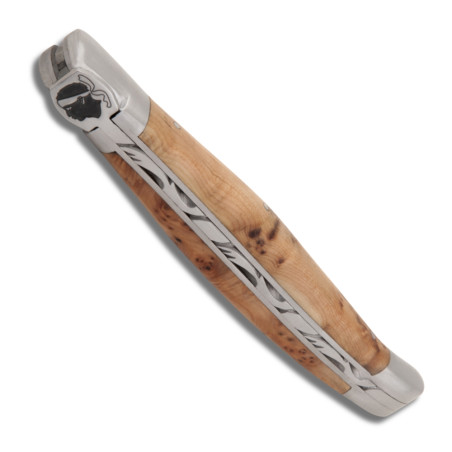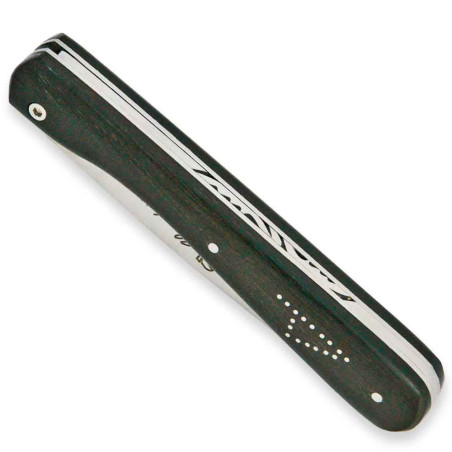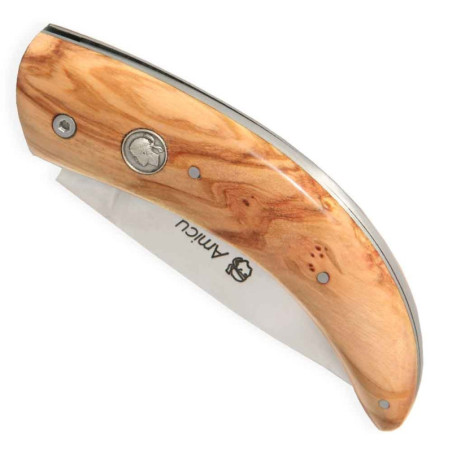

Menu
Menu
Vendetta corsa knife
Discover the collection of Vendetta Corsican knives with handles adorned with the Moor's head symbol.
Fruit of a long regional tradition, the Vendetta Corsa knife is easily recognisable by its straight blade and its unusual "wasp-waist" handle.
Not that we want to reveal the truth behind the legend, but the Corsican Vendetta knife’s past is not what people usually think…
This Corsican folding knife and its evocative ‘Vendetta’ name are actually directly linked to a book written by Prosper Mérimé in the mid-nineteenth century, Colomba. The author had the opportunity to visit Corsica in 1939, in his capacity as inspector of historical buildings. Fascinated by the ethnological dimension of Corsican traditions and impressed by the tale of a feud between two families in the village of Fozzano, caught in a never-ending cycle of revenge (vendetta in Corsican language), he decided to rewrite history.
The success of his romantic and dramatic novel, helped by the then developing tourism industr, started a « Corsican trend” on the mainland.
Thiers cutlery-makers (tipped by a Corsican retailer, Giordani, located in Ajaccio) wasted no time in creating a knife to fulfil everybody’s fantasies and boost their business…
And thus was born the Vendetta, a knife of uncertain origins (some say Malta, other Naples), the epitome of a successful trade operation.
They manufactured a large folding knife with a distinctive shape and impressive look, which tourists looking for authenticity couldn’t wait to buy as a souvenir of their Corsican stay.
At that time, the long handle was usually made of ink-decorated bone. The cutlery-makers then added the distinctive Moor’s head to add to the folklore. As for the blade, a symbol of besmirched honour, it frequently featured mottos promoting revenge such as
• Vendetta Corsa ⇒ Corsican Revenge
• Vendetta Morte ⇒ Revenge or Death
• Morte al Nemico ⇒ Death to the Enemy
• Vindica l'Unore ⇒ Avenge your Honour
If the Vendetta knife is only historical thanks to its legend, there is in fact a true knife making tradition in Corsica dating back to Ancient times.
Studies have shown that the Romans were the first to design folding knives. When Corsica became Roman in the 2nd century AD, local craftsmen made local versions of this impressive tool.
Corsica has always been an agropastoral society. Over time, the Islanders used local ore to manufacture their tool and defend against possible invaders. In each family, everyone had their own knife, at best made by a blacksmith, one of the village-renowned « maestri di u focu », but very often the knife had been made by the shepherd himself, with whatever materials were available (leftover materials from tools, goat horns, scraps of wood).
The Laguiole Vendetta knife.
Nowadays, it’s the cutlery-making craftsmen in Thiers who perpetuate the non-ancestral tradition of the knife with such a debased legend… But shh - let’s not spoil the myth of the famous Vendetta !
1) Corsican Vendetta Knife with Horn, Bone, or Wood Handle?
We offer all types of handles for this knife. It is also possible to have rarer materials for this iconic knife. Just ask us.
2) Corsican Knife Price?
It mainly varies depending on the material of the handle. The price will be around €80 if you want a classic olive wood handle and up to over €200 if you request a shell handle, such as mother-of-pearl.
3) What is an Old Corsican Vendetta Knife?
An old Corsican Vendetta knife is a model that has stood the test of time, often made before the 1950s. These knives are highly sought after by collectors due to their history and rarity.
4) Why Buy a Corsican Vendetta Knife?
The Corsican Vendetta knife is an excellent choice for those looking for a traditional design and strong symbolism. In addition to its beauty, it is handcrafted by artisans who continue a unique craftsmanship. Like all regional knives, it is mainly made in Thiers.
5) Where to Find a Corsican Vendetta Knife?
You can buy a Corsican Vendetta knife in specialized shops in Corsica, but keep in mind that nearly all of them are made in the Thiers region of Auvergne.
6) Are There Other Corsican Folding Knives?
Yes, we also offer a Moor's head to replace the traditional fly that usually adorns our Laguiole knives.

